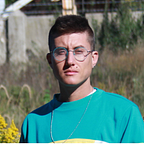I’m pretty sure my friend is Autistic. Should I tell them?
For far too long, external judgement has defined the neurodivergent experience. Let’s not continue that problem.
Welcome back to Autistic Advice, a semi-regular advice column where I respond to reader questions about neurodiversity, accessibility, disability justice, and self-advocacy from my perspective as an Autistic psychologist. You can submit questions or suggest future entries in the series via my Tumblr ask box, linked here.
Today’s question comes from an Autistic person who has many friends who sure seem like they might be Autistic — but who bristle at their suggestion that might be the case:
I very much understand why you are asking this question, Anon. Like you, I have had many friends who have struck me as quite obviously Autistic.
The neuro-nonconforming have knack for finding one another. We keep each other company as we glumly walk the mile in gym class, and cluster together at the corner of the party, grimacing from the noise with our arms crossed. The people who tend to be the most patient with my info-dumping are my fellow special-interest-having obsessives; the people who have proven the most patient with my irritability and meltdowns are ADHDers who know how to forgive and…
